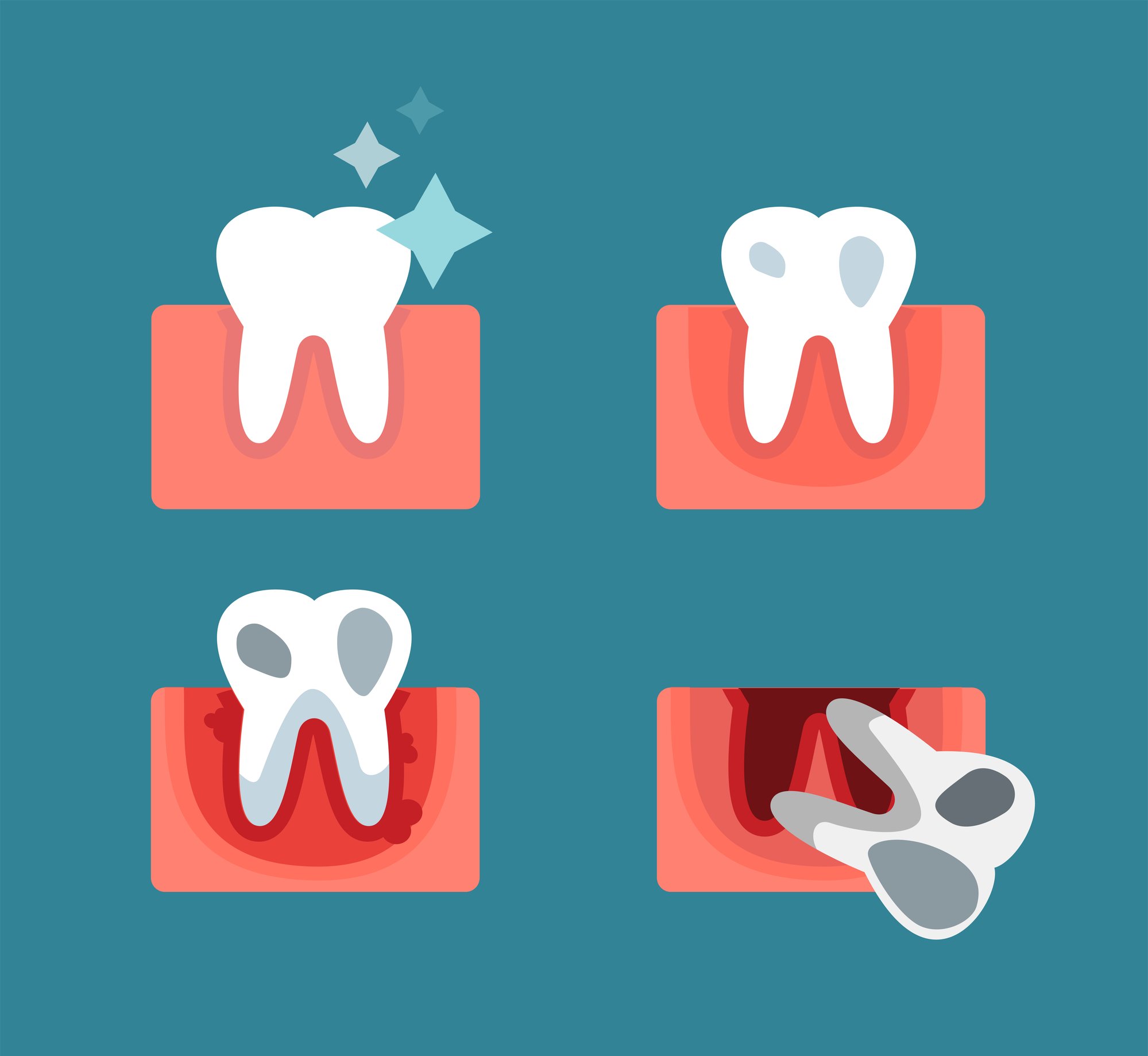
Gum disease, also called periodontal disease, affects millions of American adults every day—sometimes without them even realizing it. Bad breath, bleeding gums, irritated or swollen gums, and dental sensitivity are just a few of the main indicators of periodontal disease. These symptoms can affect how you interact with others, what you eat, how you eat, and how well you brush your teeth.
In other cases, gum disease symptoms are nearly invisible. By the time a person with unnoticed and untreated gum disease visits the dentist, they may need extensive dental treatment. This is why regular dental cleanings and exams are so necessary. This way, dentists can detect and treat early signs of the disease and save their patients from serious oral and overall health consequences.
Continue reading to learn about the causes and effects of gum disease.
Causes of Periodontal Disease
Ultimately, gum disease is a result of an imbalance of good and bad bacteria in the mouth. When the bad, disease-causing bacteria begin to take over, it’s difficult to restore that balance without the help of a professional.
So, how do the bacteria become imbalanced? There are several ways, including:
- Poor oral hygiene: Improper brushing techniques, lack of flossing, and poor eating habits all contributes to periodontal disease. When plaque builds up over a long period of time, it turns into tartar which can only be removed by a dentist. Plaque begins to feed the disease-causing bacteria and the infestation continues to grow.
- Hormonal changes in women: Hormones shift during pregnancy, menstrual cycles, and menopause and can cause inflammation throughout the body—including the gums. Women should pay careful attention to their oral health during these times. The good news is that the symptoms usually disappear after their hormones are back to normal.
- Smoking and chewing tobacco: In any form, tobacco is one of the worst substances for teeth and gums. They both inhibit the proper function of the gum tissue cells, creating an environment conducive to disease.
- Crooked teeth: Dental misalignment can sometimes be an oral health issue as well as an aesthetic one. Crooked, crowded teeth make it much more difficult for patients to clean between their teeth and make it easier for food and bacteria to hide there. Over time, those can lead to decay and gum disease.
- Genetics: If your parents struggled with gum disease, you’re probably at a higher risk for developing it. Be sure to tell your dentist so he can help you prevent it as much as possible.
Effects of Gum Disease
Along with being the number one cause of tooth loss among adults, periodontal disease is associated with several overall health conditions, such as:
- Heart and kidney disease
- Diabetes
- Asthma
- Alzheimer’s
- Osteoporosis
- Cancer
- Impotence in men
Many studies have been done to link gum disease to each of these issues. According to the American Academy of Periodontology, these associations are most likely due to the inflammation of the gums that spreads to other parts of the body.
Get Treatment for Gum Disease Today
While the symptoms of periodontal disease may seem harmless, this infection can lead to serious consequences. Thankfully, dentists offer effective treatments to reverse or manage the problem.
At Magic Smiles, our dentists are passionate about helping patients achieve optimal oral health which includes a mouth free of gum disease. Call today at (02) 6654-0650 to schedule an appointment with our dental experts in Woolgoolga.


